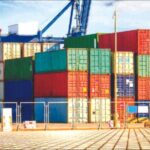Waste2Fresh: Revolutionizing Sustainable Textile Industry Practices

Waste2Fresh is an innovative project addressing the global issue of denim waste water contamination through the implementation of innovative technologies. Textile dyeing and treatment contribute significantly to water pollution, with large denim factories using substantial amounts of water for their processes, leading to adverse environmental impacts. Waste2Fresh, funded by the EU, aims to combat this problem by creating a demonstrator that efficiently treats and recycles water in a denim factory in Turkey.
The project employs catalytic processes, photocatalytic processes, and membrane separation to rapidly treat waste water, removing colour and harmful effects without generating sludge. This eco-friendly approach minimizes space requirements, allowing more of the factory site to be available for production. Additionally, a bio-composite of nanostructured material, grown without fertilizers, pesticides or irrigation, has been developed to degrade dyes. This material is both regenerable and biodegradable, aligning with circular economy principles.
Waste2Fresh integrates circular economy principles, life cycle analysis (LCA) and life cycle costing analysis (LCCA) to create an environmentally sustainable system. Solar concentrator technology, utilizing natural sunlight for organic degradation, along with LED technology during night time, contributes to energy efficiency. New sensors have been developed to measure waste water contamination levels, ensuring compliance with recycling standards and zero discharge of hazardous chemicals.
The project focuses on a comprehensive approach, addressing every aspect of the recipe and process. Metal ions and salt are removed using a separation, removal and upgrade strategy. Rainwater harvesting supplements the closed-loop recycling system, maintaining sufficient water for use. The project aims to achieve alignment globally to combat textile dye pollution, involving stakeholders such as brands, government authorities, local communities and dyers.
Waste2Fresh offers adaptable solutions that can be implemented individually based on customer requirements. The technology can benefit Community Effluent Treatment Plants (CETP), removing colour and harmful effects before entering the treatment facility. The project addresses the challenge of textile factory waste water, a substantial global issue, with potential applications ranging from large denim factories to village bespoke dyers.
Nanofique Ltd, leading the provision, expresses a mission to end textile dye pollution. Richard Burke from Nanofique Limited states, “Our mission is to end textile dye pollution and provide the technology needed to achieve that.” The technology, initially focused on the denim sector, holds promise for broader applications in the textile industry.
Waste2Fresh emerges as a transformative solution to industrial waste water treatment, offering hope for a more sustainable future. The project showcases the potential for innovative environmental solutions, paving the way for advancements in addressing water contamination and scarcity on a global scale.














